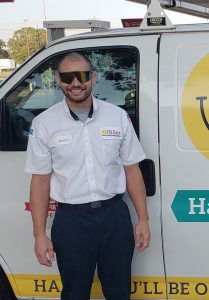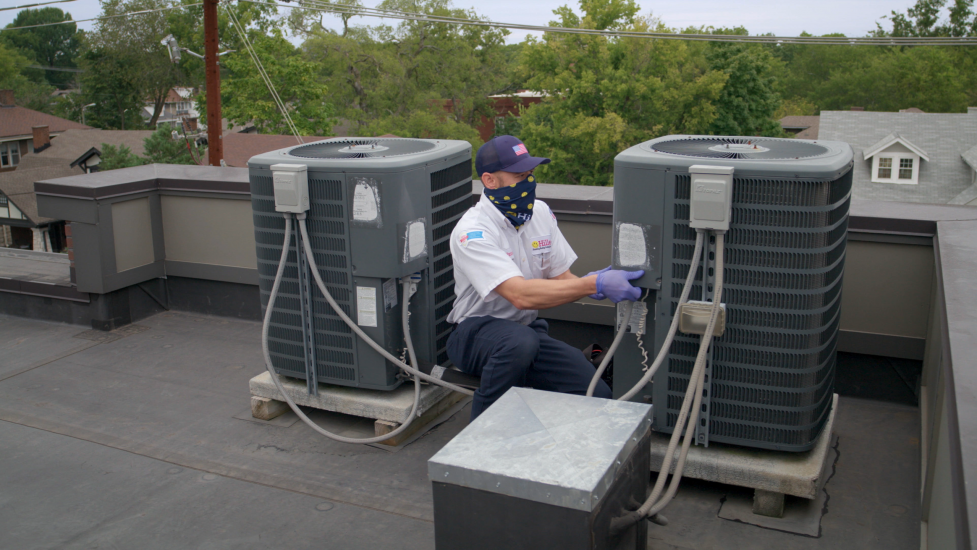When the weather cools and the heat isn’t working, who do you call? In the sweltering heat of summer and your air conditioning isn’t helping, who do you call? An HVAC technician. Heating, ventilation, and air conditioning.
Hiller, as one of the largest family-owned residential home services companies in the country, provides HVAC, electrical, and plumbing services in Tennessee, as well as parts of Kentucky and Alabama.

Daphne Frontz, Hiller’s program manager for the job training initiative, says many employers are supportive of returning veterans. “We know we are not alone in our work to ensure transitioning service members find meaningful employment,” says Frontz.

It’s important “to ensure the military community remains part of corporate America’s talent strategy,” she adds. “In 2016, Hiller partnered with the U.S Army in Fort Campbell, Kentucky, along with our trade school, Total Tech to create the program,” explains Frontz.
“The program allows any transitioning military member from any branch of the military to learn a skill, go to a trade school, an apprenticeship, anything that assists them with becoming a civilian and going to work.”
Frontz notes that not all trainees end up working for Hiller, adding there are over 200 companies that accept veteran placements. “Upon completion of the Transition to Trades program, Hiller assists the transitioning military members with employment across the United States.”
Frontz says veterans are ideal employees. “What we have found is that it is easy to train employees and the technical skills required to succeed. But the foundational values that make for a great team member are not as easily taught. In the military, they teach professionalism, teamwork, integrity, determination to succeed, and a heart for serving other people. These values make them highly successful team members once they enter the field.”

Jason Huber, an Army veteran, began working at Hiller as an HVAC tech two years ago. He says, typically, the service calls he makes are weather-driven.
“You have to be EPA-certified dealing with refrigerant, and then you just got to have some technical background to work on a system like this with all the electrical components and know how the system runs,” according to Huber.
Skills he learned in the Army, including punctuality and a hard work ethic apply to his HVAC job, says Huber.
Huber says there is great satisfaction solving customers’ problems.
“Enjoy it. I love it. There’s nothing better than providing service to customers and seeing their smiling faces whenever you’ve got their unit back up and running.”
According to the Bureau of Labor Statistics (BLS), the median pay last year for HVAC technicians was $48,730 a year.
Read more of our stories about veterans and work on our website or in our magazine, Inquire Within.











